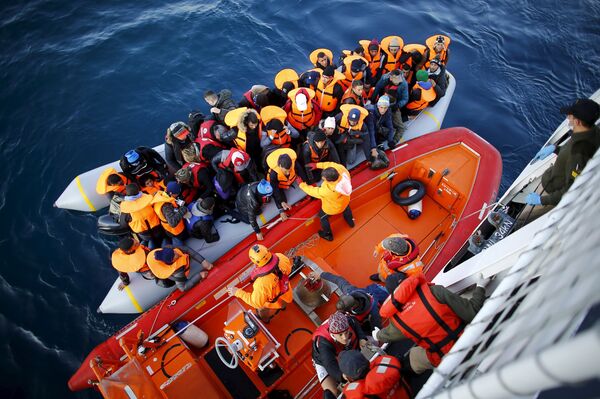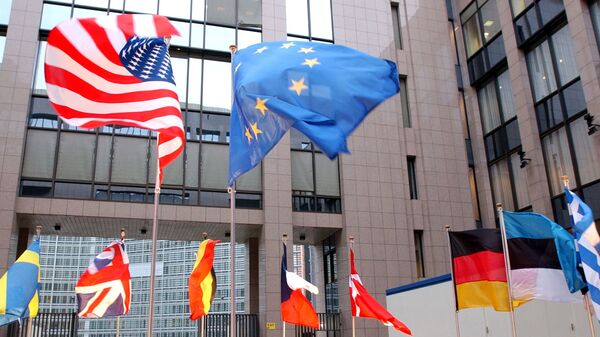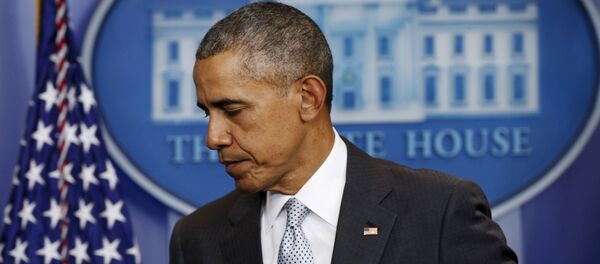"The transatlantic partnership has been the world's most durable and significant alliance, underpinning the global economic order and bolstering peace and stability (such as it is) for nearly seventy years. … But it is now weaker, and less relevant, than at any point since the Marshall Plan. In 2016, the transatlantic alliance will be a hollow one," the report titled "Top Risks 2016" stated.
The second reason, which has helped to reinforce this trend, is the unilateralism of the US foreign policy, supported by "new areas of coercive diplomacy – surveillance and the weaponization of finance," the report noted.
And finally, Europe, the study maintains, is "strategically weak," while its leaders focus on tackling their own economic and political troubles.
"Governments are going their own way, a trend most obvious in new alignments of Europe's three major powers in new (and opposing) directions," the group observed.
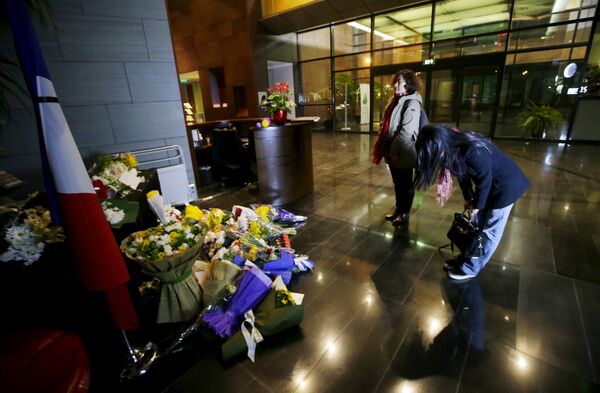
France, primarily guided by security challenges, is fostering ties with Russia. Paris views Moscow as one of its key partners in tackling terrorism.
"After the most recent attack on Paris, France used a chapter of the Lisbon treaty to call for collective European security – for the first time in history – rather than turning to NATO, which would have made it much harder (if not impossible) to collaborate with Russia. That speaks volumes about France's priorities and the transatlantic alliance," the analysts asserted.
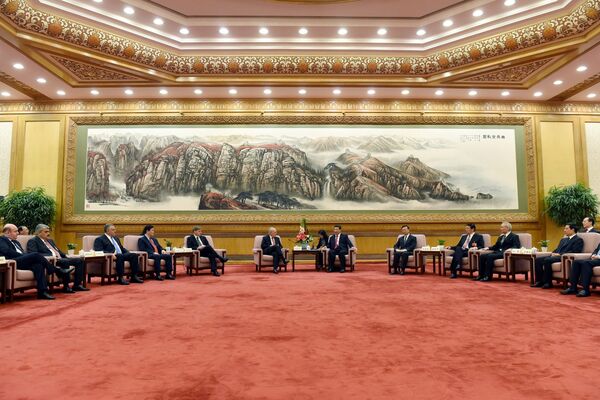
For the United Kingdom it's all about the economy at a time when the crisis and austerity left limited opportunities for major infrastructure projects. As a result, London is making an effort to build a "very special" relationship with Beijing. As part of this process, the UK joined the China-led Asian Infrastructure Investment Bank (AIIB), even though Washington was not happy about it.
In the meantime, Germany has been focused on working with Turkey to solve the refugee crisis.
German Chancellor Angela Merkel "has made significant overtures to Ankara, promising to support fast-track European Union integration for Turkey as well as offering billions of euros to President Recep Tayyip Erdogan if he takes the lion's share of responsibility for the refugees," the report noted.
